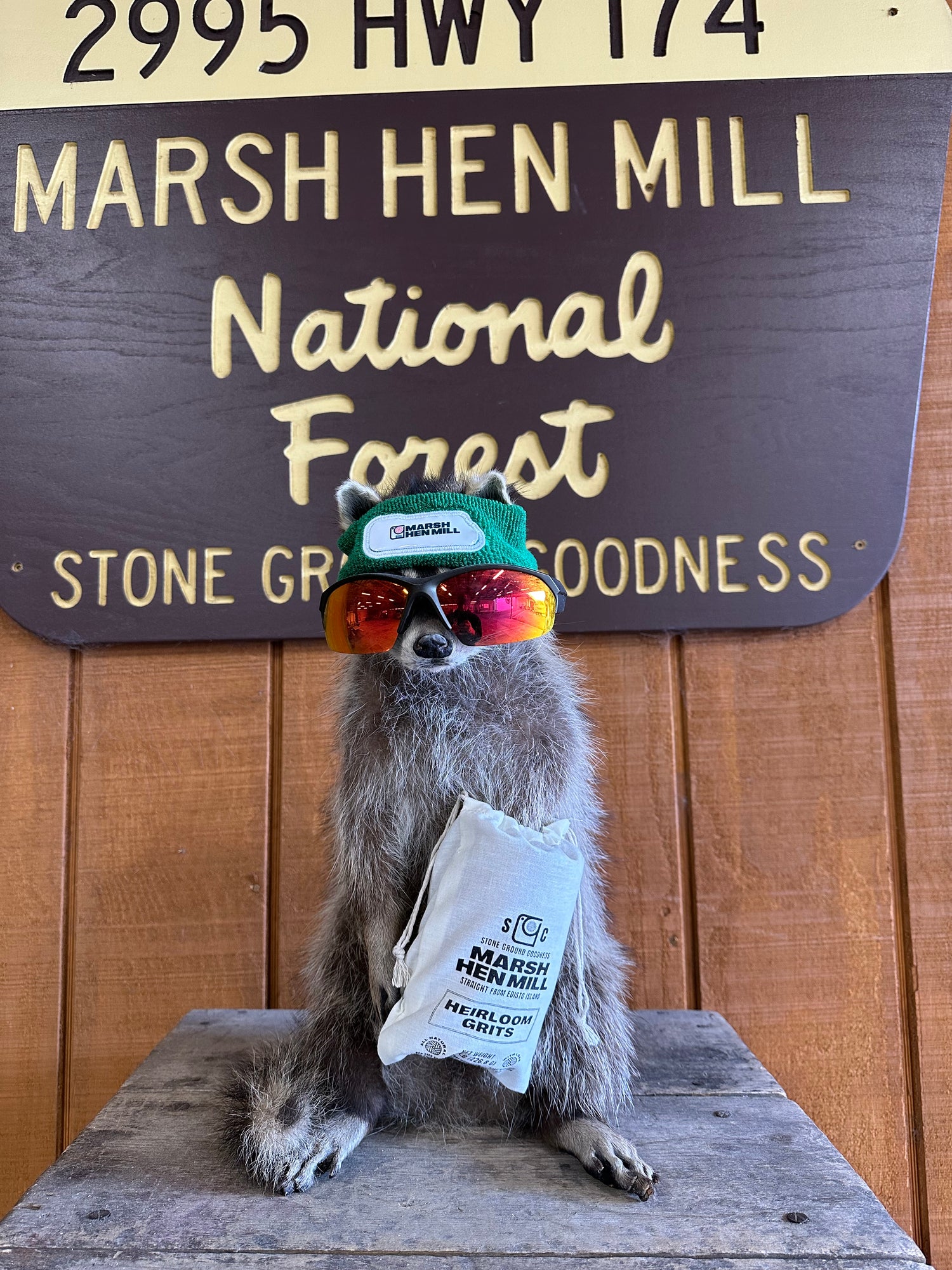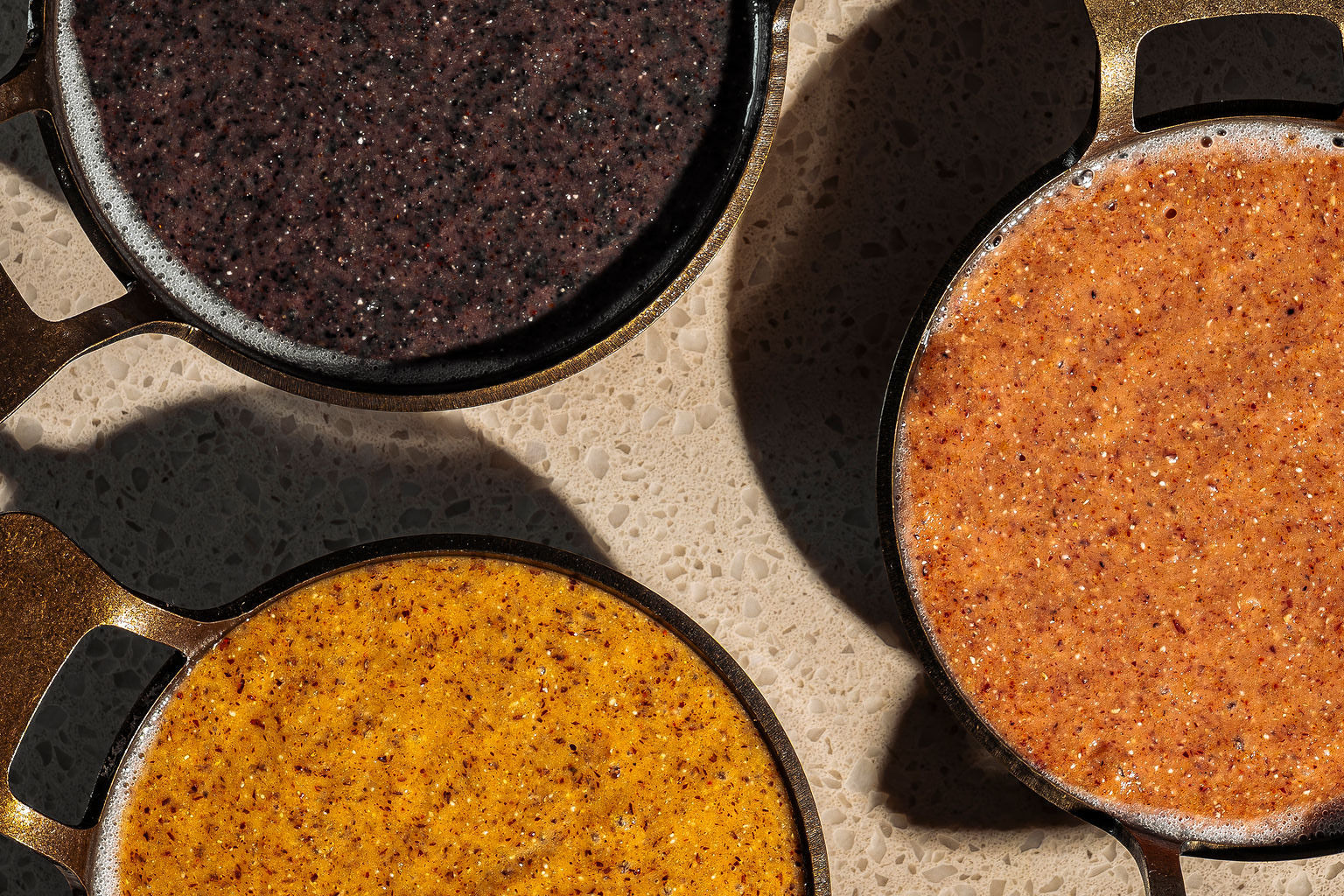Looking for Office Gifts?
Frequently Asked Questions
Find quick answers about our products, cooking, orders, and more—straight from the mill.
Cooking & Preparation
Check out our blog page for recipes.
Different varieties of our grits may require a longer cooking time or more liquid. Elevation and stovetop heat can also affect results. Try small adjustments until you get the desired texture.
We recommend soaking peas to reduce cooking time and help them cook more evenly. The larger the batch, the longer the soak.
All nutrition information refers to the uncooked product.
Product Details & Ingredients
White grits tend to be sweeter due to higher sugar content, while yellow grits have more oil, resulting in a richer flavor.
Our cornmeal has a slightly fine grind, making it versatile for many recipes.
All of our grits are stoneground and set just under the usual coarse grind—we find it’s the perfect balance.
There are no added colorings. The shades come naturally from our heirloom corn varietals. Adding acid like lemon juice can even enhance the color.
No. Masa is made from nixtamalized corn, typically from Southwestern corn varietals, and has a different texture and flavor.
Those are called pins—the natural ends of the corn kernels where they attach to the cob.
All rice, corn, pea, and benne products—including all grits and cornmeals—are gluten free and processed in a separate facility. Freekeh and farro contain gluten.
Freekeh is a traditional Middle Eastern grain made from green wheat that’s sun-dried, roasted, and rubbed. Our version uses spelt for its ancient roots and rich, smoky flavor.
Farro is an ancient wheat. Ours is piccolo farro, or einkorn, which is known for its high protein content.
Flint corn is harder and produces robust grits. We use Southern dent corn, which is softer and starch-rich—ideal for stoneground milling.
Hominy is corn that’s been nixtamalized in an alkaline solution. It can be whole or ground. In some regions, “hominy grits” is used interchangeably with grits.
Polenta is a whole grind, keeping all parts of the corn. Grits are separated into larger particles, with fines used for cornmeal or flour. Flint corn, often used in polenta, doesn’t produce corn flour.
Storage & Shelf Life
According to the FDA, storing in cold, climate-controlled conditions greatly extends shelf life—almost indefinitely. Avoid storing in hot environments like garages or sheds.
Ordering, Shipping & Bulk
If you need a larger quantity, please contact us directly by phone.
We ship to all states. If you’re seeing an error, try updating your browser or clearing your cache. If issues persist, contact us.
Visiting & Experiences
Not at this time, due to health and foodsafety concerns.
Get in Touch
Have questions, need help with an order, or just want to say hi? We’re here for you—reach out and we’ll get back as soon as we can.




